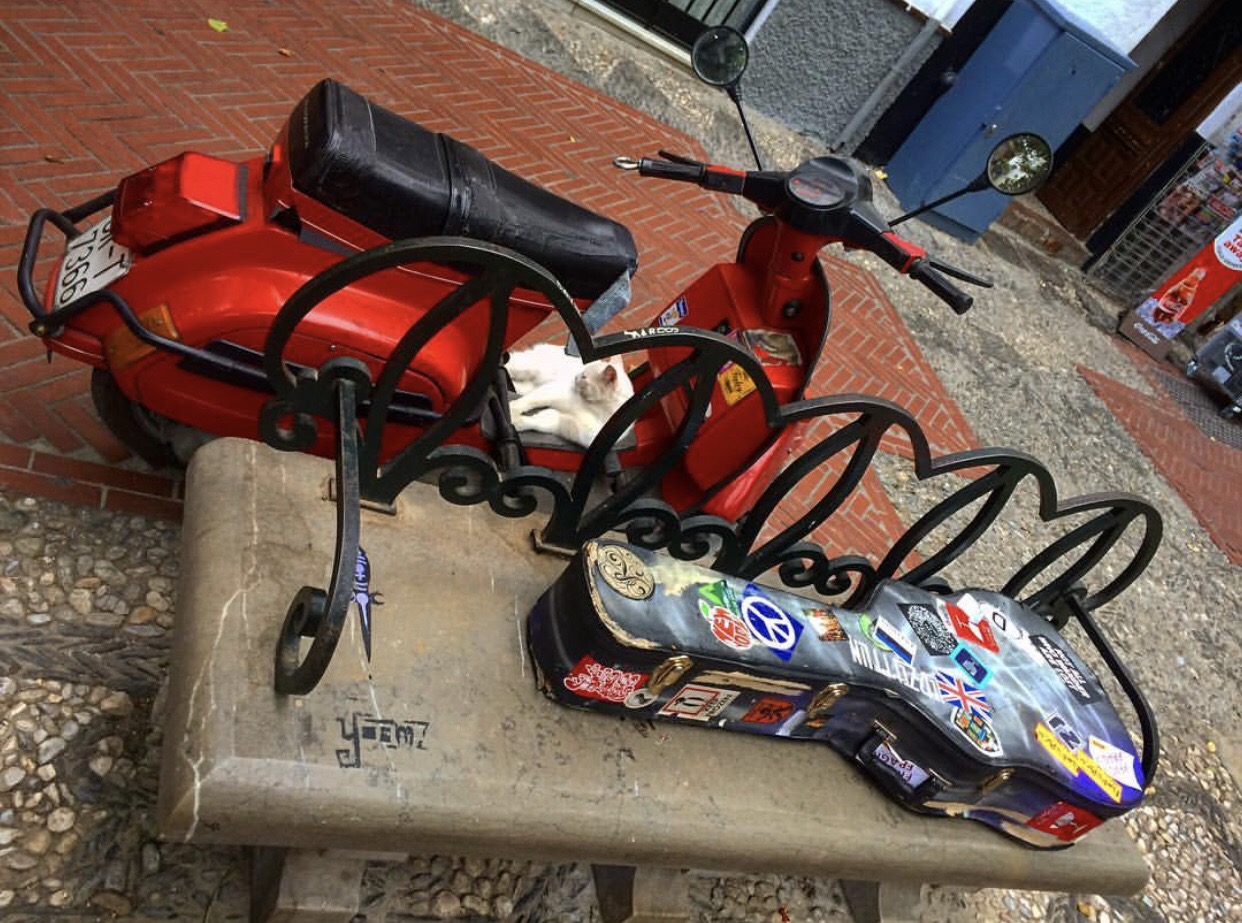August 16, 2018
Albayzín, Granada, Spain
It was nine a.m., and the chill of the night air still hung in my bedroom on the third floor of my friends’ Albayzín home in Granada. Despite the sun beginning to emblazon the morning Andalusían sky. I’d spent the last two weeks living in Granada, busking and waiting for my new visa to Russia to finish processing so I could rejoin my life partner. Who knew how much longer I would be here? I felt like I was in a Casablanca situation where all I could do was “wait, and wait, and wait.” I missed her dearly and all of her nuisances. When you spend years with a person who is your best friend and your lover, it’s strange to spend such an amount of time apart.
Lazzo, one of my friend’s three cats, woke up in his corner of my bed, yawning and smiling. He’d become my sidekick in the first week I was here. I checked my phone to find texts and emails from the outside world, but nothing about my passport beyond an older email that said the visa was being processed.
“Fuck… this is slower than watching paint dry,” I sighed and then climbed down the two flights of steep stairs into the kitchen to grab breakfast and make myself some fresh, strong espresso. As it brewed, I rolled a morning joint with Tangier chocolate and Andalusían green. After everything was prepared, I went back up to my crows’ nest, opened the door to the terrace and sat there in just shorts, enjoying my coffee, the joint and the morning Andalusían sun.
I dropped things into second gear —I got a quick morning workout in, a shower and then opened my guitar case and pulled out my ‘73 Fender Newporter. Time to get ready for work. Our work was as demanding as it was fun; every day we would get up early and stay out late, trying to scratch some coin out of the the tourists and travelers. I had snapped the G string last night jamming with Pablo and my other friends in Huerto De Carlos after a day in the blazing sun at work in the plazas around the Albayzín. My guitar needed new strings anyways. The strings’ glisten and shine in both sight and sound had begun fading long ago, but these were tough economic times. I only had two more sets of strings to last me the rest of my time here, and my guitar was the only way I was making a living. I was far from the luxury of fresh strings every week, along with many other things.
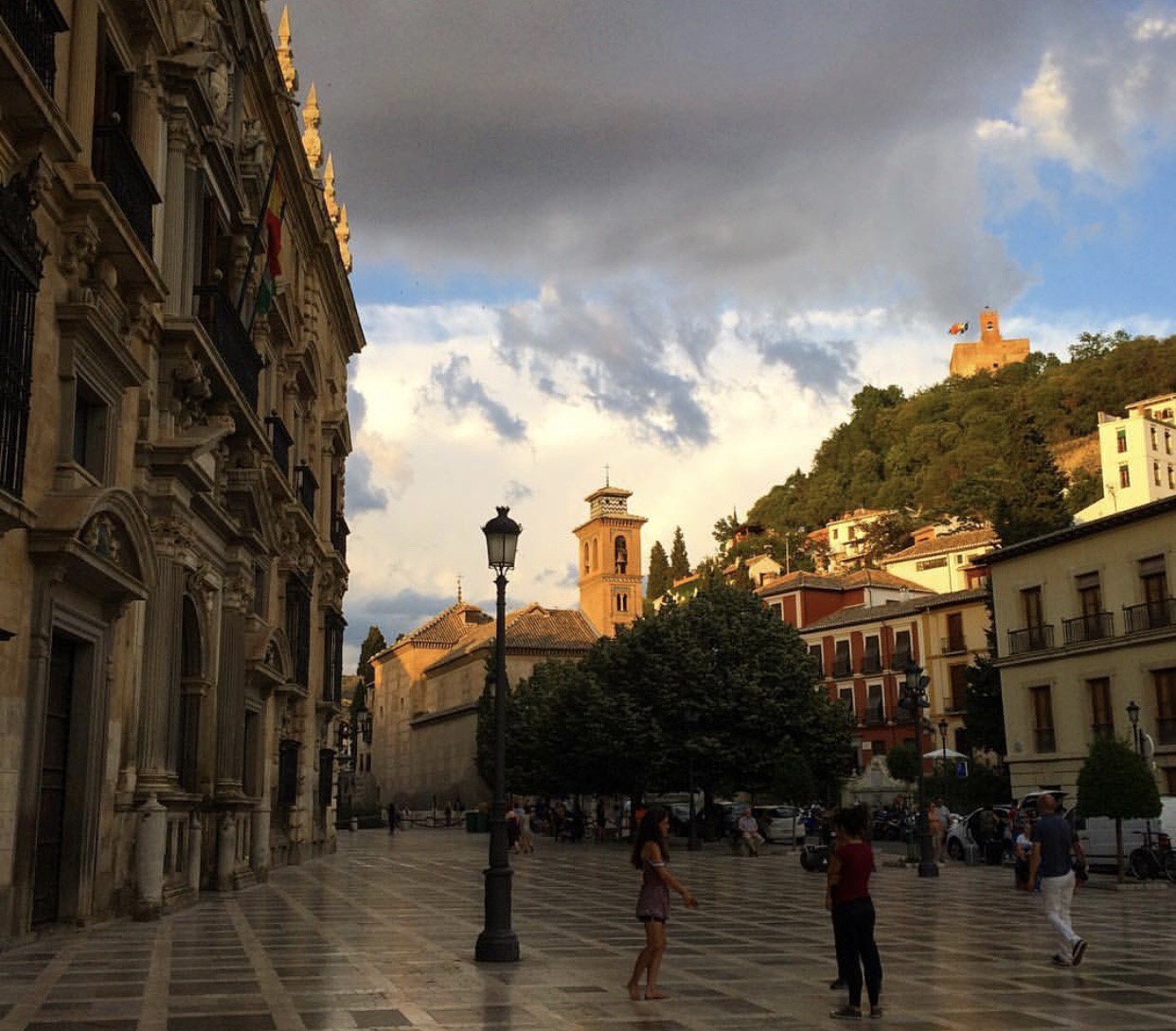 Michael Todd
Michael ToddI changed out the strings as fast as Django Reinhardt can build a riff, threw on some clothes and headed down the mountain for Plaza Nueva to see what the action was like moving into lunchtime. On the way I stopped at the local carnicería (halal butcher) off Calle Elvira and grabbed a chicken and almond pastela called a Moruna, some fresh saladillas (small baguettes with sea salt), a bottle of Rioja and two bottles of coconut water for fuel. I walked out onto Plaza Nueva and spotted an Andalusían gypsy flamenco duo I had gotten to know. I walked up to them, shook hands and asked how the money was for the day so far. They said that they had only made €4, but that it wasn’t even lunch yet. We talked about where we planned on playing and then decided to work Plaza Nueva together 10 minutes on 10 minutes off and see what would shake loose. We then tossed a coin to see who would be the opening act. I won and chose to go last out of respect.
They played their hearts out, as do all the street performers in Granada. I’ve never seen a local music scene like I have here. After they finished and managed to rake a few more euros into their pockets as well as some adoration for their roaring Flamenco, I felt a tight grip on my throat. “Now I have to follow that,” I thought.
I waited two minutes to take their spot and began to play my guts out with my own jumbled, flamenco influenced, gypsy jazz. The two stood there watching and admiring my playing, along with a few others; others meandered past in an endless flow. The 10 minutes or so I played felt like five as I built into what felt like an appropriate end of one last chord that rang out, which was met with an honest and humbling applause.
I bowed several times, flipped over my guitar exposing its dreadnought back and held it out like a frying pan to the small audience.
“¿Dinero para la música, por favor?” (Money for the music, please?) I said.
I managed to get €4 for my 10 minutes in the sunlit spotlight of the plaza and, more importantly, the respect of my Andalusían gypsy comrades-in-arms. If you can hack it here busking, you should feel a distinct sense of pride and humility. This after all is Andalusía; the birthplace and homeland of the guitar. After the crowd split, I walked over to my amigos with a smile. They smiled and told me it was strong, and that they could feel my heart. If you asked a Andalusían gypsy what Flamenco or what their music is, they would tell you something along the lines of, “it is a feeling that cries out from the soul.”
We discussed continuing or moving, and where the best spots would be around the Albayzín to hit during lunch before siesta descended upon the whole of the city. I thought about sojourning up the mountain to Plaza Larga or Plaza Aliatar, since I was meeting my business partner and good friend Pablo up there for our nightly duet to bring in the coin. There was also the option of going up the other mountain to the gates of the Alhambra where there was sure to be a constant crowd. It was a split decision and we parted ways for the time being. They headed for the Cathedral and Plaza de Bib-Rambla and I started the hike up the hill for Plaza Larga through the Albayzín labyrinth. 15 minutes later I was at Arco de las Pesas, the ancient Nasrid gateway to Plaza Larga. The place was buzzing and brimming from the tabernas, cafes and street market.
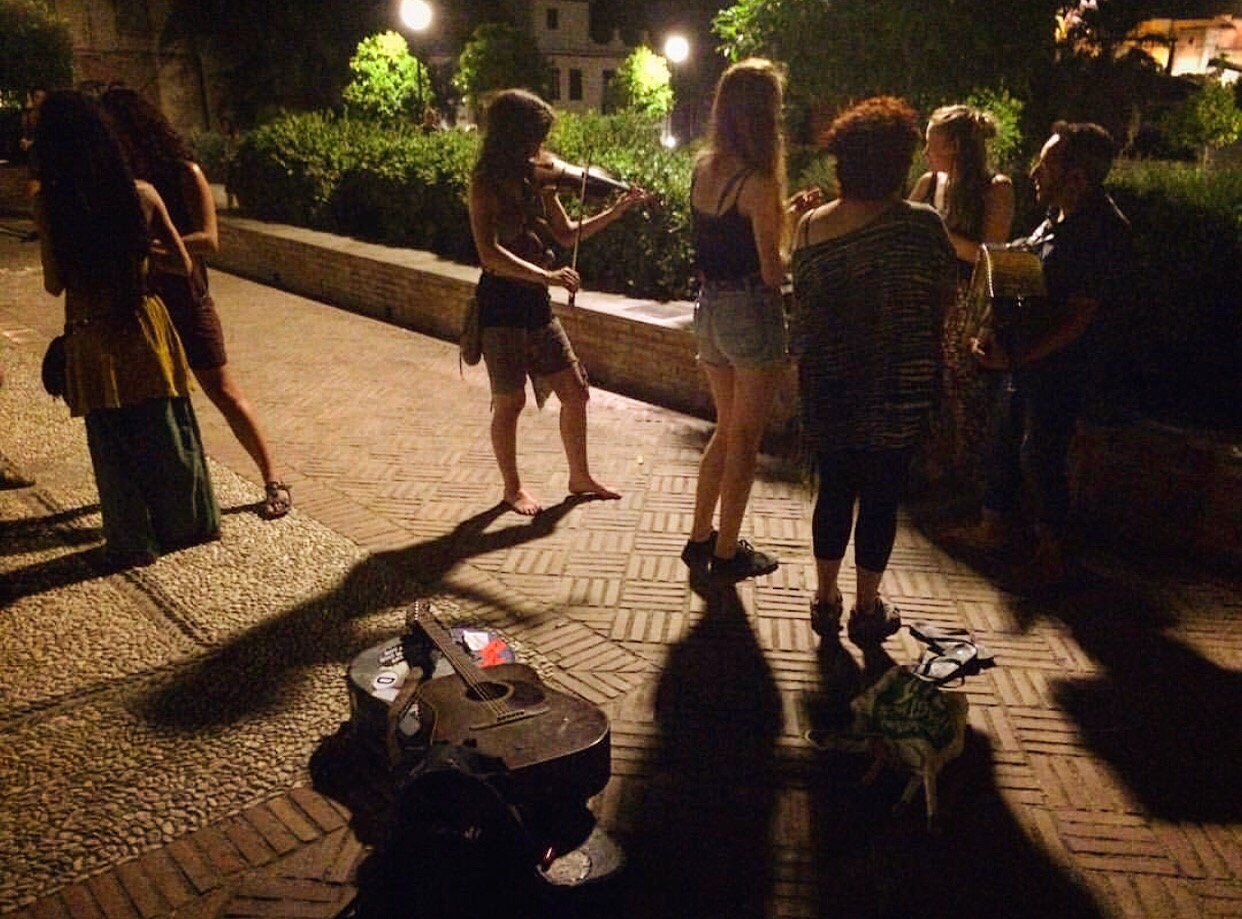 Michael Todd
Michael ToddEven before I could get a full view of the plaza after coming down and around the corner, I could hear Pablo wailing out “Samba Pa’ Ti,” it couldn’t be anyone else. There wasn’t an open table to be found, and I was hoping he would really yank on the heartstrings of anyone in earshot. At the same time I was jealous he got first pick at the money tree. He has a beautiful wife and 2 daughters at home that he busks hard for every day.
I spied other friends sitting on a bench in the middle near Pablo, patiently waiting for their turn to shake some leaves from the money tree – João from Brazil, with his seven string Samba acoustic, and Klaus from Canada with his jazz flute. João was young like Pablo and me, but had been a lot of places around the world, with his guitar paying the way. He was just that likeable and genuine. Klaus was Canadian, or at least that’s what his passport said, but he’s been living in Europe the last 20+ years migrating from hippy commune to hippy commune. He looked like an middle aged pirate, and sounded like one when he belted out a laugh. I’ve gotten to know these guys well from jamming and playing with them every day. It’s amazing how music is a language all its own.
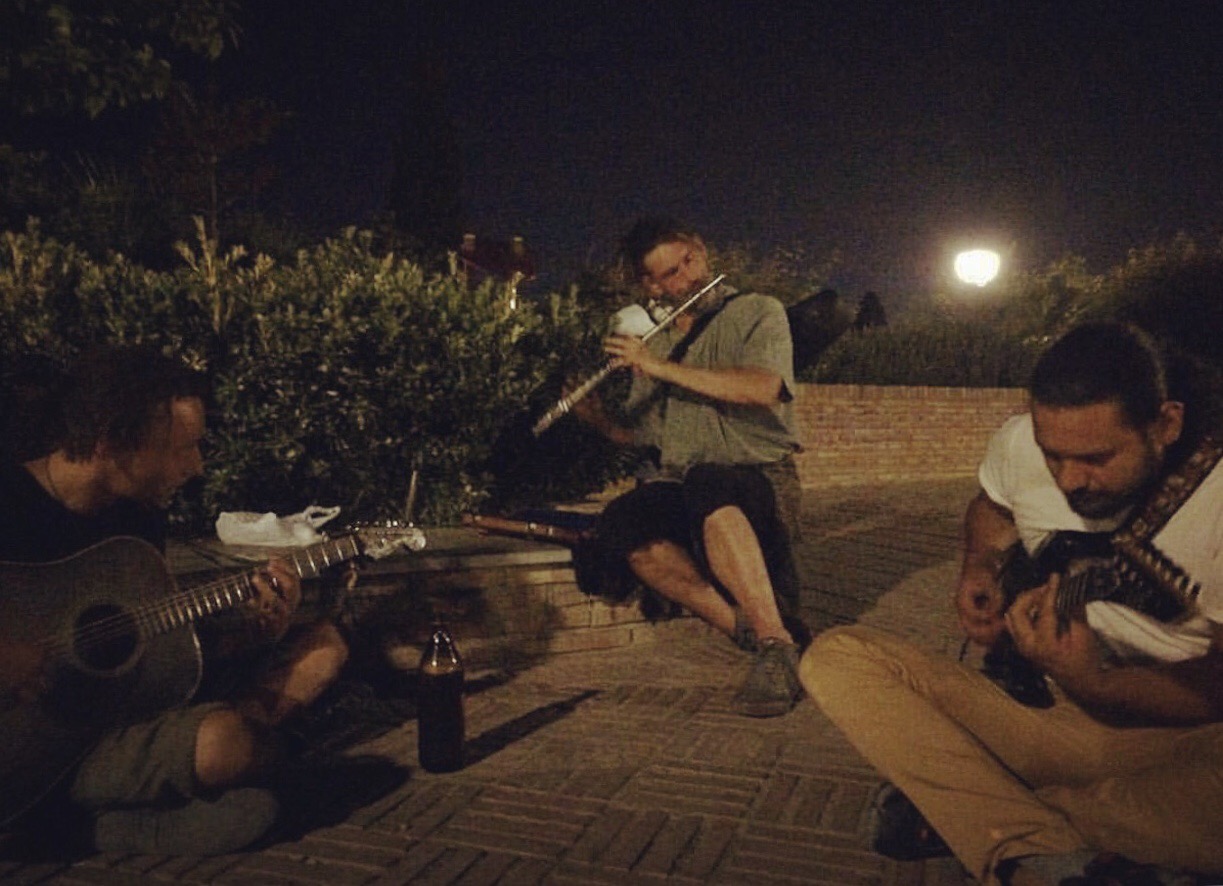 Michael Todd
Michael ToddAfter we smiled, said our hellos and high-fived we talked about how the action of the day looked like guys running a floating craps or poker game. João and Klaus offered me a spot to make it a trio. Considering that there wouldn’t be any money left to be made in the plaza for another hour at least after their set, I agreed. When I told them my logic, they laughed. Pablo had just gotten started which meant there was enough time for an afternoon double espresso and a shared joint. I asked João and Klaus if they were game and there were no complaints. By the time we’d finished our Kerouac tea and coffees, Pablo was on the last few measures of the solo on Pink Floyd’s “Another Brick In the Wall.” That meant it was almost show time.
Pablo wrapped things up and started his walk around the tables, asking everyone for a contribution. He had a way of holding his guitar out to the people with the money on it like a giant spoon that came off more like a friendly stickup, a nice balance between a hustle and humility. He packed up his gear and joined us. We asked how he did, and he just smiled at us like a bastard who just lost his virginity. I knew then that we’d have to play five times better or we would be performing for free. We picked up our instruments, took to the cobblestone stage, looked each other over. João dropped in, with Klaus and I just a measure behind. What else could we do? We could only buy the ticket, take a ride, and see where it would take us.
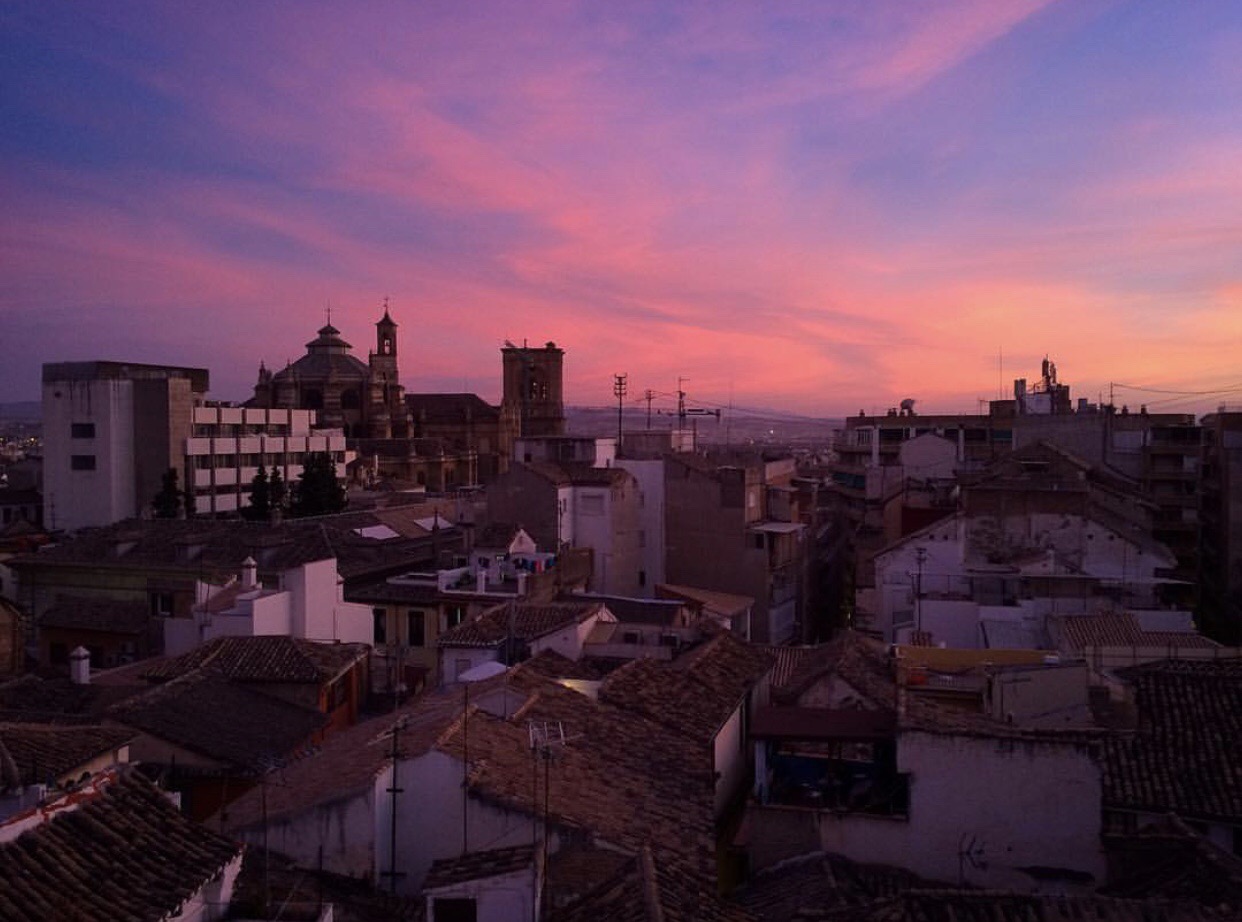 Michael Todd
Michael ToddMichael Todd

